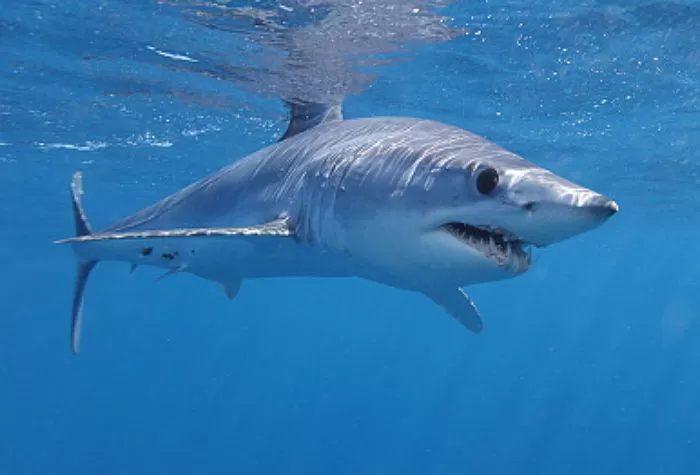Warning about 'Aggressive Sharks' Issued on the East Coast
Due to global warming causing rising sea temperatures, it is anticipated that a greater number of 'aggressive sharks' will appear along the East Coast this summer compared to previous years.
On the 24th, the National Fisheries Research Institute announced, "With the rise in sea temperatures, warm-water species such as yellowtail, skipjack tuna, and mackerel are increasing along the East Coast, leading to sharks being drawn to the area in pursuit of prey."
According to the Fisheries Research Institute's study on "Distribution and Ecological Characteristics of Large Shark Species," a total of 49 shark species inhabit the waters near the Korean Peninsula.

Among these, there are so-called 'aggressive sharks' that can pose a threat to humans due to their high level of aggression. These sharks enter coastal waters in pursuit of prey such as mackerel, striped marlin, anchovies, and squid when the water temperature rises in May.
In the past two years, 11 species of 'aggressive sharks' have been caught accidentally along the East Coast, with the number of occurrences skyrocketing from 1 in 2022 to 44 last year.
The rising sea temperatures due to global warming have created a favorable environment for sharks.
In fact, the catch volume of yellowtail, a representative warm-water fish, has soared from an average of 1,265 tons per year from 1994 to 2013 to an average of 6,709 tons over the last ten years, a 4.3-fold increase.

In response, Sokcho City, Donghae City, and Samcheok City announced plans to install hundreds of meters of nets in the surrounding waters to prevent shark entry ahead of the summer beach opening.
Additionally, they will implement 'shark repelling patrols,' which involve attaching devices that emit electrical currents to jet skis to periodically patrol the sea and drive away sharks.
Choi Yong-seok, the director of the National Fisheries Research Institute, stated, "This year, there is a high possibility of large sharks appearing along the East Coast during the warm months from May to August, so we urge fishermen and travelers to be cautious."

Image Source: Blue shark accidentally caught near Baeksok Port in Uljin last year / Photo courtesy of the National Fisheries Research Institute, supporting materials for understanding the article / News1, supporting materials for understanding the article / gettyimagesbank


